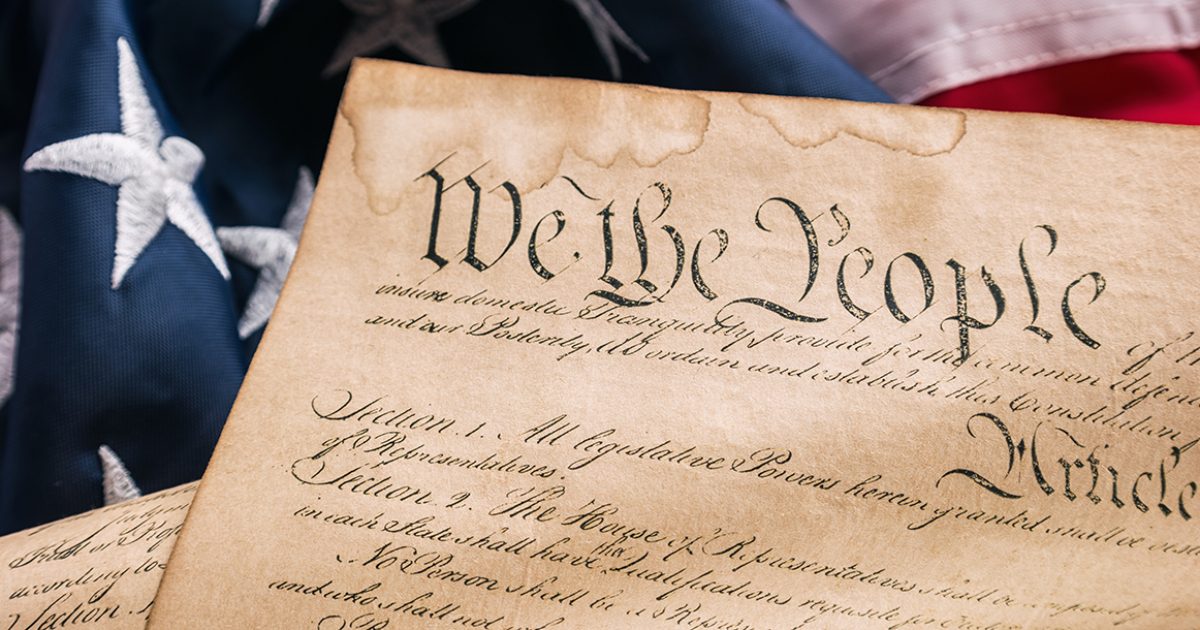Illegal search and seizure is still a crime.
I remember watching an old CPAC conference from about 5 years ago, and I remember this being a topic of discussion.
It made my heart happy that Conservatives were holding law enforcement accountable, and not just blindly supporting them in everything they do.
People have to remember that these officers are an extension of the state, and they have been the main enforcers of tyranny many, many times over.
When people show up to take your guns they won’t be volunteers……they’re going to be law enforcement officers. When unconstitutional Covid regulations are levied, guess who is doing the enforcing?
According to reports, SCOTUS has protected The Fourth Amendment, which guarantees Americans safety from illegal search and seizure.
This is WONDERFUL news, because SCOTUS has made some not so great decisions lately, and I was beginning to think they had kind of abandoned the whole Constitution thing.
Statism keeps growing in our society, and even these small victories should not make us less vigilant.
We always have to remember that the state is forever and always the force equal and opposite to liberty.
Here is the latest on the story:
HUGE GOA victory!
SCOTUS rules 9-0 that the police cannot abuse the 4th Amendment & seize guns from the home WITHOUT A WARRANThttps://t.co/mwOma7cJra
— Gun Owners of America (@GunOwners) May 17, 2021
What majority? of nine justices, of 96 Senators, of American citizens?
What Japanese American family was protected by SCOTUS? Interned American citizens weren't even protected from the cold or heat or hunger, let alone, freedom of the 4th Amendment.Tryanny can be past tense. https://t.co/eiujipPFFZ
— Palli Davis Holubar #HandMarkedPaperBallots (@palliddh) May 29, 2021
CNN reports:
The Supreme Court on Monday wiped away a lower court decision that held that law enforcement could enter a Rhode Island man’s home and seize his firearms without a warrant after his wife expressed fear that he might harm himself.
A lower court had allowed the search, holding that the decision to take the firearms without a warrant fell within the Fourth Amendment’s “community caretaking exception.”
But Justice Clarence Thomas, writing for a unanimous Supreme Court, held that the lower court’s broad interpretation of the exception “goes beyond anything this Court has recognized.”
While the court has recognized that police officers can perform “many civic tasks in modern society,” there is “not an open-ended license to perform them anywhere,” Thomas wrote.
Biden Urges SCOTUS to Let Cops Seize Guns Without A Warrant;
Biden is urging the Supreme Court to let law enforcement officers seize guns and other firearms from citizens, despite not having a warrant.
4th Amendment protects citizens from “unreasonable searches and seizures.”
— Conservative American (@honor_country) May 28, 2021
https://twitter.com/jedimarkus77/status/1395445738776272900
Scotus Blog wrote:
During an August 2015 argument with his wife, Edward Caniglia offered her one of his unloaded guns and requested that she put him out of his misery. Instead, she threatened to call 911. After the couple’s argument continued, she left the marital home to overnight at a hotel. When she returned the next day, she enlisted Cranston, Rhode Island’s police department to perform a wellness check on her husband. They did. They also arranged transportation for Edward to obtain a psychiatric evaluation at a local hospital. He agreed to go, but only after officers purportedly agreed not to confiscate his weapons.
However, as soon as he left, officers — apparently by deceiving his wife — entered the Caniglia home and seized Caniglia’s handguns and ammunition. Caniglia sued, alleging that the officers violated his Fourth Amendment rights. The U.S. Court of Appeals for the 1st Circuit sided with the officers by relying on Cady, a 1973 decision that upheld the warrantless “caretaking” search of a car that had been in an accident.
The court’s opinion, written by Justice Clarence Thomas, was devoid of the fearsome, compelling specter raised in the briefing and during argument regarding the potential for troubling eventualities — for instance, that Caniglia may have harmed himself or his wife (or, perhaps, other innocent/intervening victims). A pithy four pages “long,” the opinion was unanimous and unambiguous: If police do not have the homeowner’s consent, an “exigent” circumstance, or a judicial warrant authorizing a search, then no version of Cady’s car exception applies to police entry into the home under the Fourth Amendment. “What is reasonable for vehicles is different from what is reasonable for homes,” Thomas wrote.
As always with realty – and, per Caniglia, the court’s Fourth Amendment jurisprudence — location matters. Specifically, the location of Cady’s warrantless search and seizure – a post-accident, routine search of an intoxicated, off-duty officer’s damaged and impounded car — simply cannot compare to a search of and seizure within a home.



Join the conversation!
Please share your thoughts about this article below. We value your opinions, and would love to see you add to the discussion!